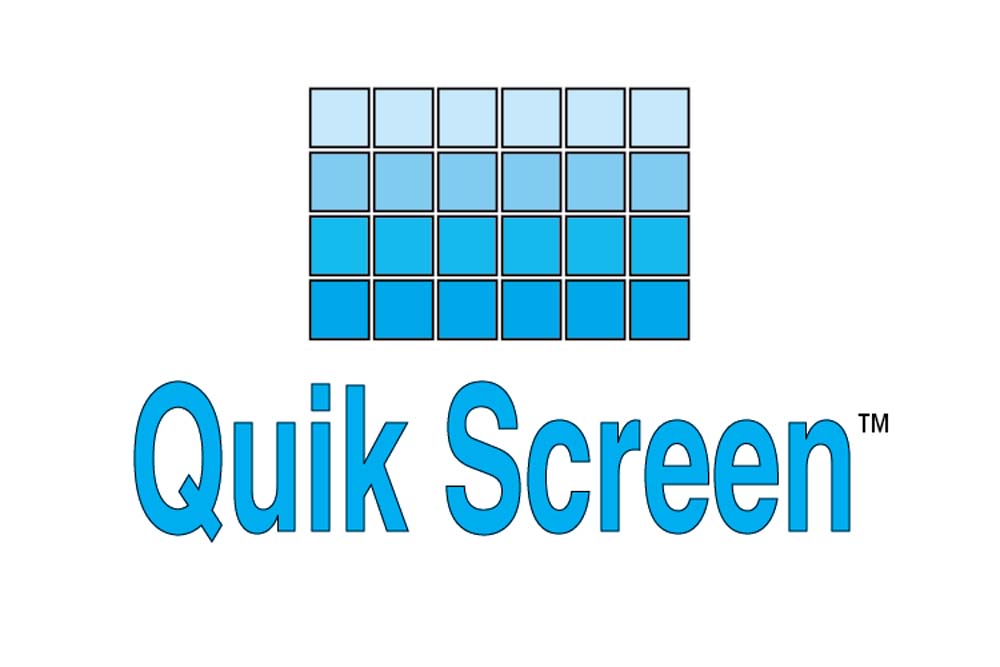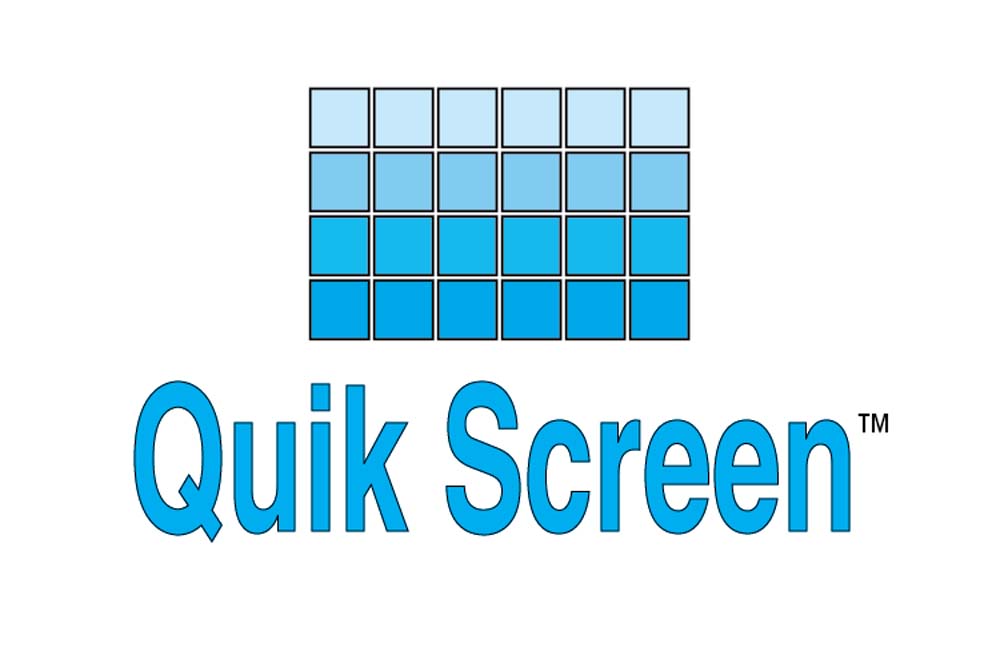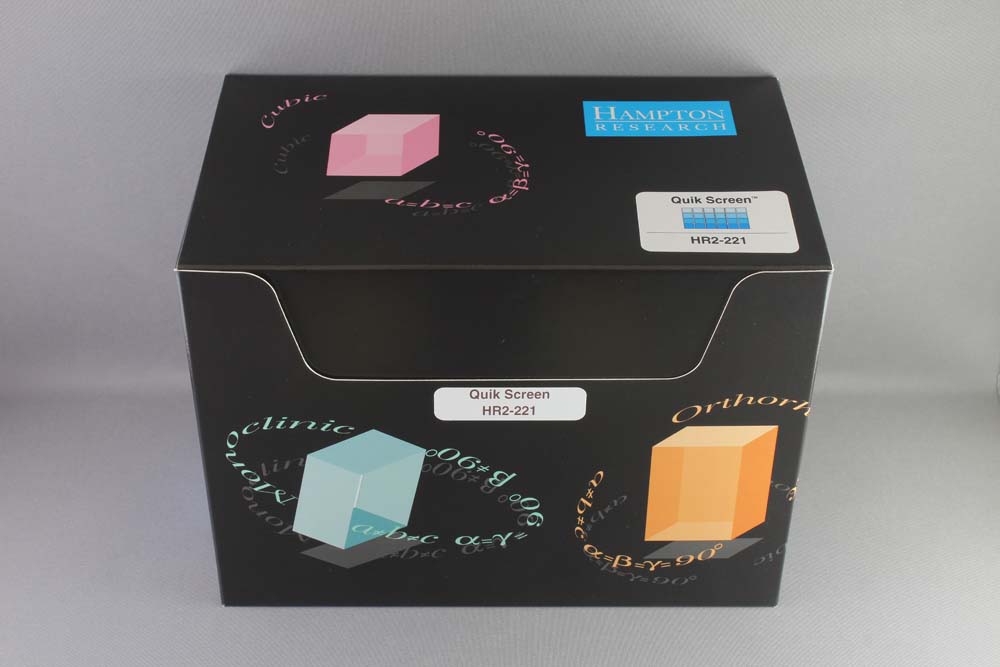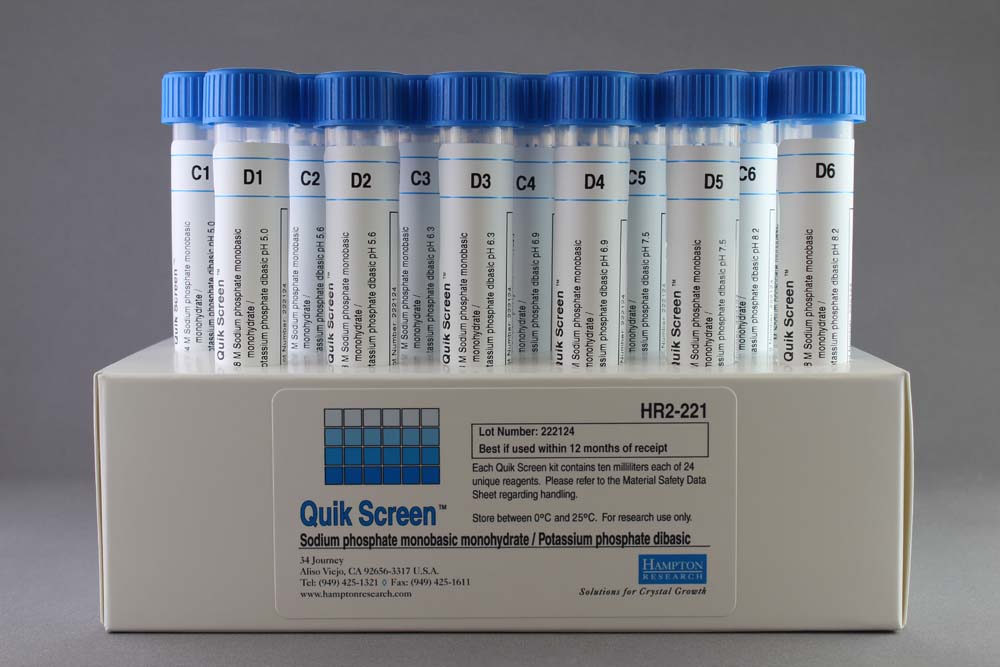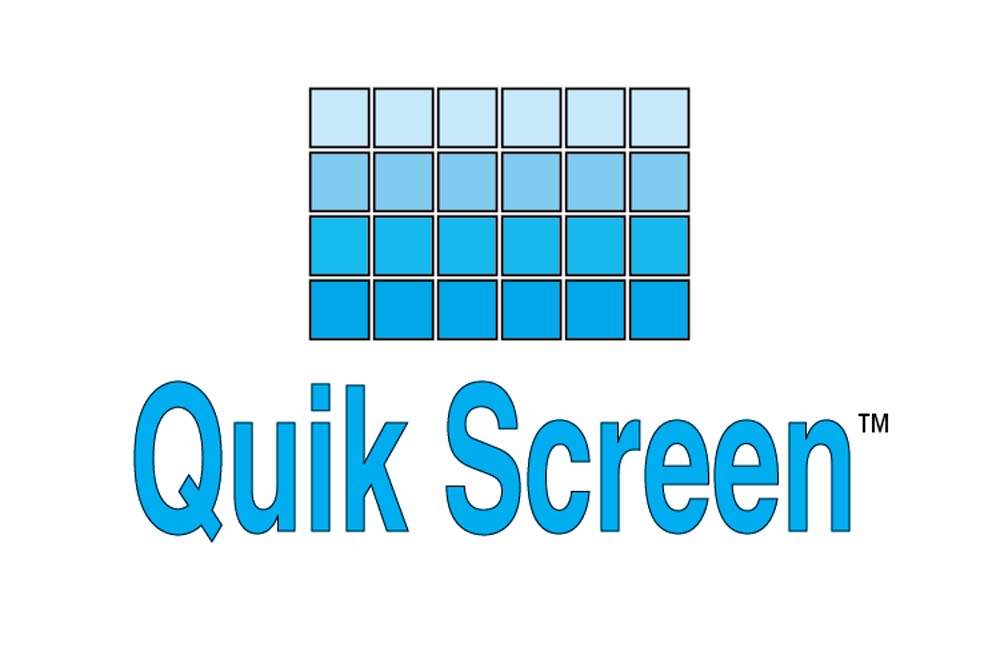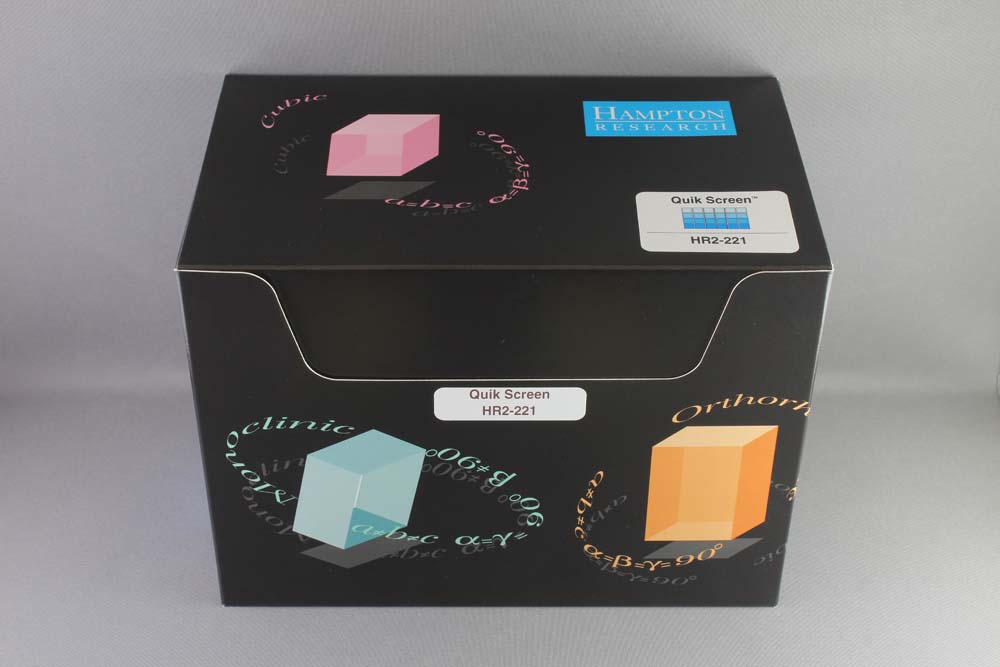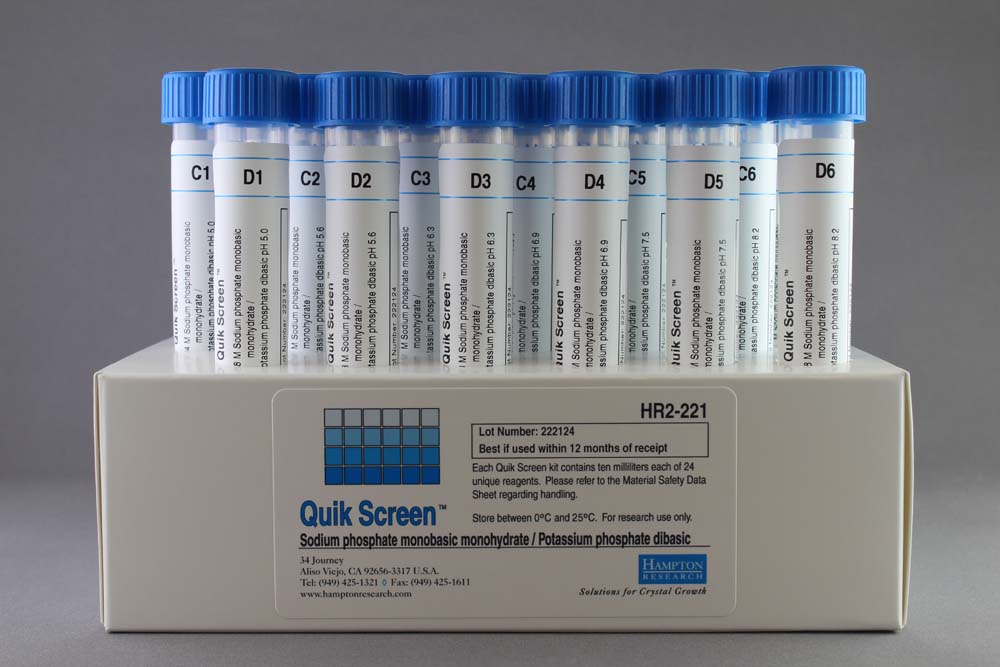Hampton Research蛋白结晶试剂盒






Products > Crystallization Screens > Grid Screens > Quik Screen
Quik Screen
Applications
- Primary or secondary, Sodium potassium phosphate versus pH grid crystallization screen for biological macromolecules
Features
- A systematic grid screen varying Sodium potassium phosphate concentration versus pH
- Samples pH 5 to 8.2
- Samples four concentrations of Sodium potassium phosphate
- Precise pH versus Sodium potassium phosphate screen
- Combine reagents between rows or columns to create expanded grid screens
Description
Quik Screen is a preformulated reagent kit designed to provide a rapid screening method for the crystallization of biological macromolecules.
The screen is simple and practical for finding initial crystallization conditions as well as determining the solubility of a macromolecule in Sodium potassium phosphate between pH 5.0 and 8.2.
Quik Screen evaluates Sodium potassium phosphate at four concentrations (0.8, 1.0, 1.4, 1.8 M) versus six pH levels (5.0, 5.6, 6.3, 6.9, 7.5, 8.2).
Quik Screen consists of 24 unique reagents, each supplied as 10 milliliter in sterile, screw cap tubes. Ready-to-use reagents are sterile filtered and formulated with ultra-pure Type 1 water, using the highest purity salts. Individual reagents are available through the Hampton Research Custom Shop.
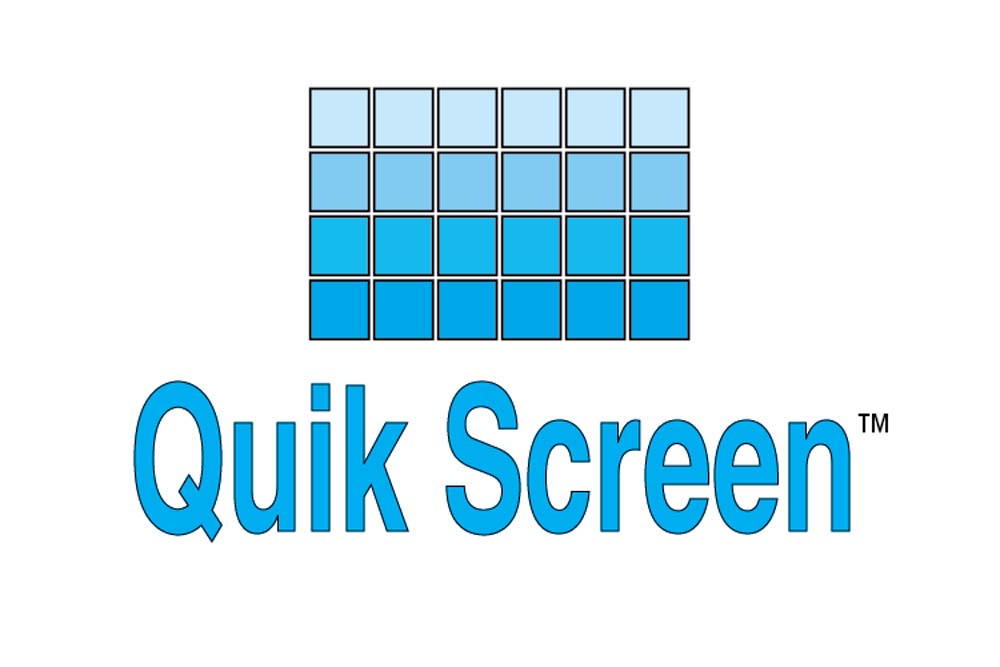
Click to Zoom In
CAT NO
HR2-221
NAME
DESCRIPTION
10 ml, tube format
PRICE
$138.00
cart quote
Support Material(s)
 HR2-221 Quik Screen Documents
HR2-221 Quik Screen Documents HR2-221 Quik Screen SDS
HR2-221 Quik Screen SDS Quik Screen Formulation & Scoring Data
Quik Screen Formulation & Scoring Data Related Item(S)
- Individual Quik Screen Reagents
References
1. Advance in Protein Chemistry Volume 41. Pages 1-33 (Patricia C. Weber). Academic Press, 1991.
2. Crystallization of nucleic acids and proteins, Edited by A. Ducruix and R. Giege, The Practical Approach Series, Oxford Univ. Press, 1992.
3. Current approaches to macromolecular crystallization. McPherson, A. Eur. J. Biochem. 189, 1-23, 1990.
4. Protein and Nucleic Acid Crystallization. Methods, A Companion to Methods in Enzymology, Academic Press, Volume 1, Number 1, August 1990.
5. Crystallization and preliminary X-ray diffraction analysis of the glucuronoyl esterase catalytic domain from Hypocrea jecorina. Acta Crystallogr Sect F Struct Biol Cryst Commun. 2008 Apr 1; 64(Pt 4): 255-257.
6. A protein crystallization strategy using automated grid searches on successively finer grids. Patricia C. Weber. Methods: A Companion to Methods in Enzymology Vol. 1, No. 1, August, pp. 31-37, 1990.


Hampton Research, first in crystallization since 1991, developing and delivering crystallization and optimization screens, reagents, plates, and other tools for the crystallization of biological macromolecules, including proteins (antibody), peptides (insulin), and nucleic acids (DNA).
- Products
- Gallery
- My Account
|
|
|
- Contact Us
- Quick Order
- Support
|
- Privacy Policy
- Terms and Conditions
|
- Products
- Gallery
- My Account
- Support
- Contact Us
- Quick Order
- Privacy Policy
- Terms and Conditions
|
|
|
|
|
|
|
© 2022 HAMPTON RESEARCH CORP.
| Website by Skyhound Internet


